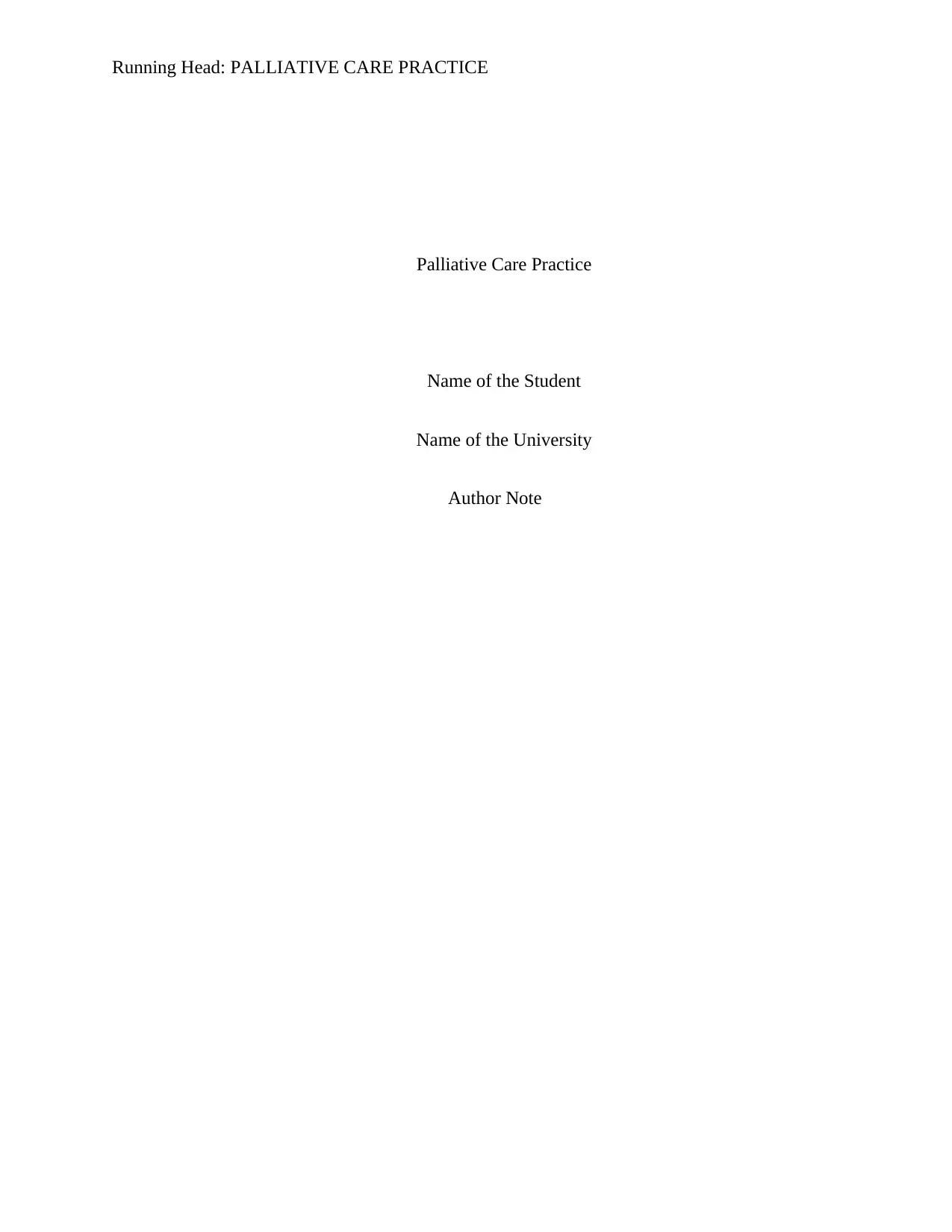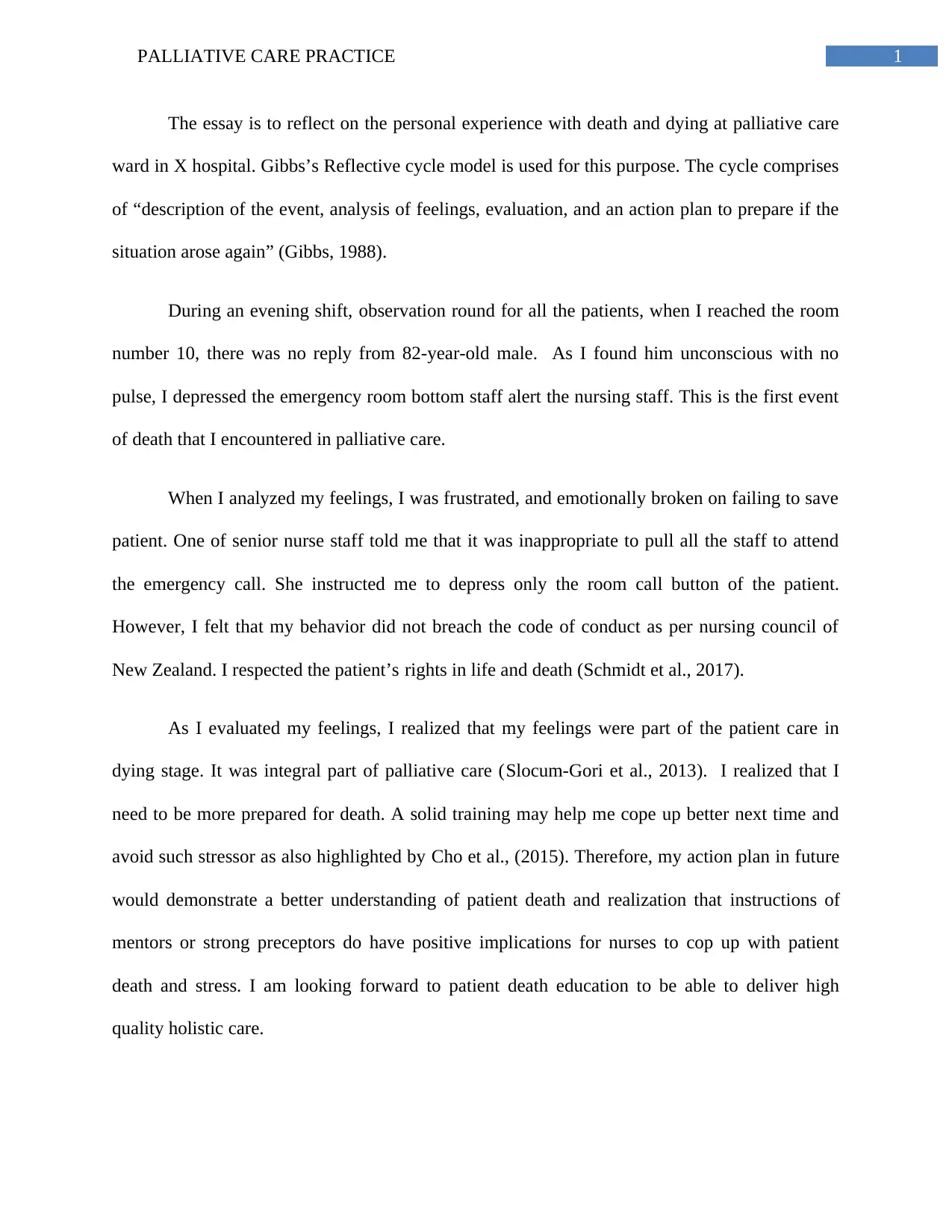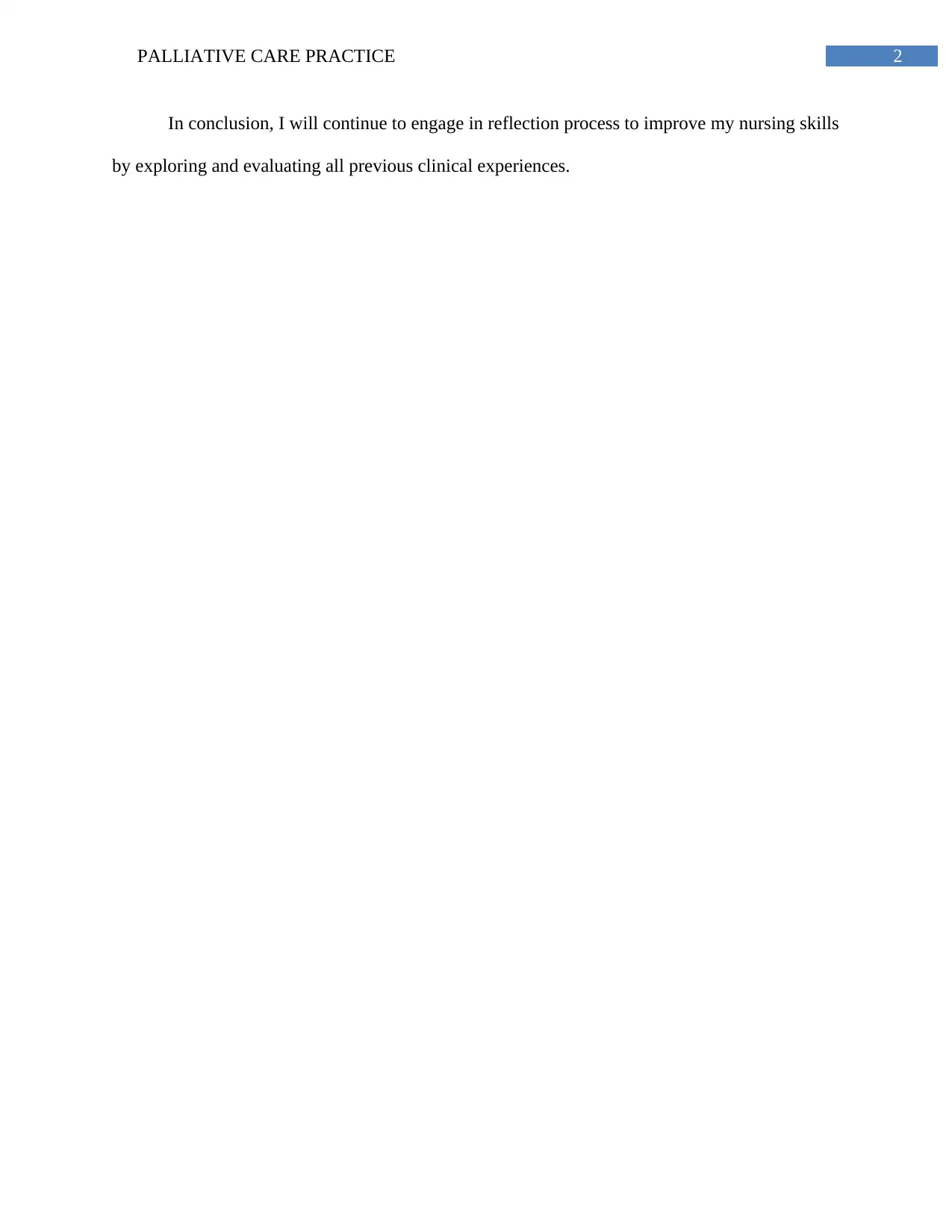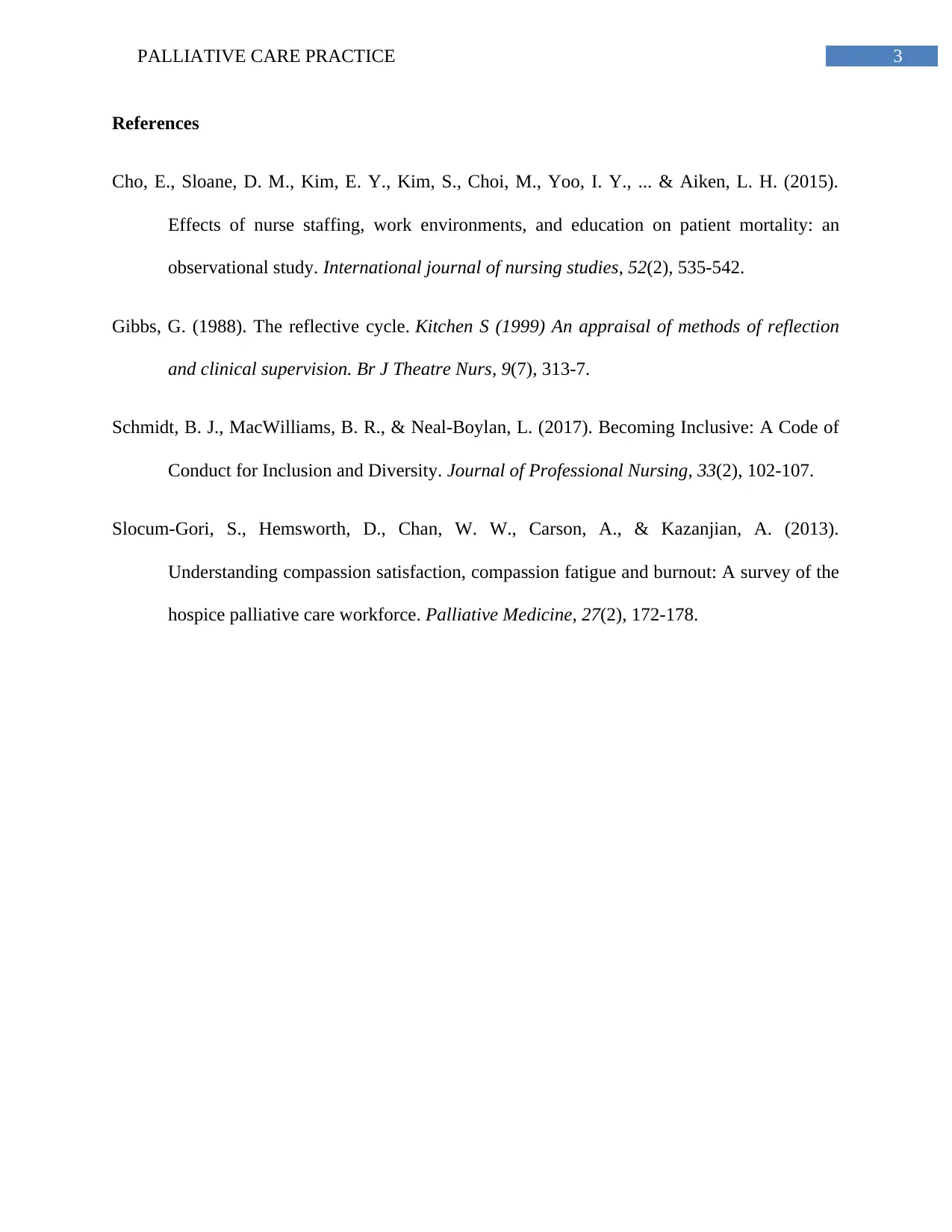Palliative Care Practice: Reflective Report on Patient Death
VerifiedAdded on 2020/03/16
|4
|609
|65
Report
AI Summary
This report presents a reflective analysis of a student's experience in a palliative care setting, specifically focusing on the death of a patient. The student utilizes Gibbs' reflective cycle to explore the event, feelings, evaluation, and action plan. The report describes the event of finding an unresponsive patient, the emotional distress and frustration experienced, and the subsequent reflection on the incident. The student evaluates the situation, considering the importance of palliative care and the need for preparedness in dealing with patient deaths. The action plan involves seeking further training to better cope with such situations and improve the delivery of holistic care. The report concludes with a commitment to continuous reflection for enhanced nursing skills. The report also mentions the importance of nurse staffing, work environments, and education on patient mortality, the code of conduct for inclusion and diversity, and the understanding of compassion satisfaction, compassion fatigue and burnout.
1 out of 4











![[object Object]](/_next/static/media/star-bottom.7253800d.svg)